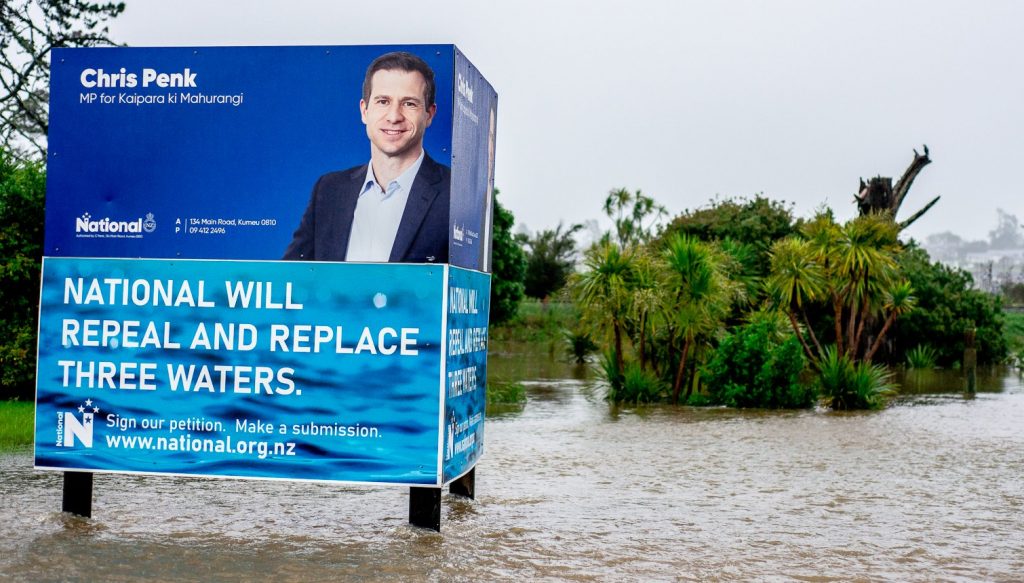The National Party says it will scrap the Government’s Three Waters Reforms, but its alternative plan just puts more pressure on already struggling councils

Boil water notices, e-coli alerts at beaches and inadequate stormwater infrastructure — there is no question that the way water services are managed in this country need to change.
The Government’s answer to these problems is to give control of the country’s water assets to four entities made up of Local Government representatives and iwi, with councils still retaining ownership of those assets.
The National Party opposes this model and has released its Local Water Done Well policy document which will keep water assets managed by local councils. The catch is that councils must prove they can make their water services financially sustainable, otherwise Central Government will have the power to step in.
With many councils already struggling to provide sufficient water services, yet alone a service that is financially sustainable, Central Government intervention seems almost unavoidable under this model — a model where its whole selling point is keeping councils in control of their water assets.
The issue is and always has been funding — many councils do not have the capital to invest in their water infrastructure to get it up to standard. Unfortunately, National’s policy barely addresses this, only going as far as saying it will support “greater access for councils to long-term borrowing” and that “councils could choose to implement volumetric water charging, charges for new connections, or have water service costs included within rates. This approach allows councils to tailor their settings to their community and ratepayers.”
In other words, more debt and higher rates.
When that is not enough, only then will Central Government even consider coming to the party, the policy says.
“Where the Government concludes that a council cannot achieve financial sustainability by, for example, gaining access to long-term borrowing, it will provide limited one-off funding to bridge the gap.
“Support will be determined on a case-by-case basis. Crown funding will not be used for the day-to-day delivery of water services, but only for projects needed to transition to a sustainable footing. National believes that restoring local control also means restoring local long-term investment responsibility.”
The policy makes it clear National does not trust councils to manage their finances and will require them to ringfence money for water infrastructure and not spend it on other services instead.
National says the way councils approach this is entirely up to them, but to be financially sustainable, it expects councils will have to work together to form bigger water entities anyway.
“We expect a number of councils will choose to form a Regional CCO, but National will not be mandating it, or
any other model. If councils can demonstrate an alternative that complies with regulations for both water
quality and water infrastructure, and is financially sustainable, National will approve it.”
Essentially it is still amalgamation, but for many ratepayers, at a far greater cost.








